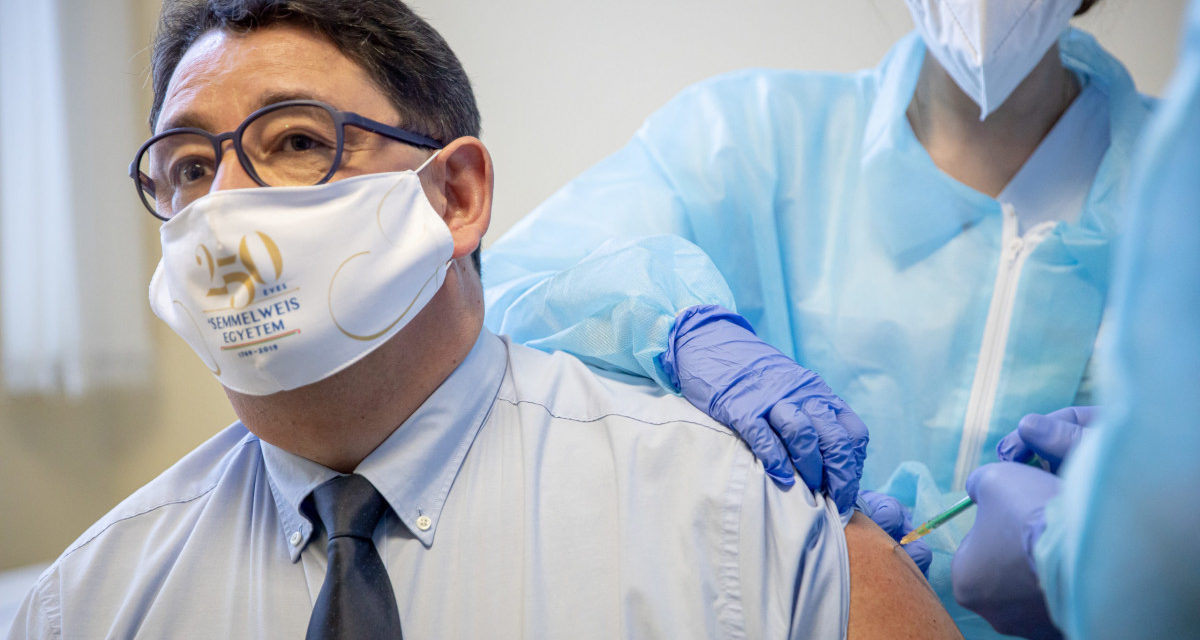The first two vaccinations against the coronavirus are extremely important, as they can reduce the probability of hospitalization and serious illness by roughly a tenth or a twentieth, said the rector of Semmelweis University in Kossuth radio's Sunday newspaper program.
Béla Merkely added: parallel to the number of vaccinated people, the number of infected people is also constantly increasing. In the last two weeks, the R-value of the Indian variant reached 1.5, which means that one sick person can infect one and a half people. In an environment without vaccinated and protected people, this number could be as high as eight, he explained.
He pointed out that we are seeing a sharp increase in the number of infected people, which proves the acceleration of the epidemic. He added: for the time being, the number of infected people in hospitals does not reach what it was in the same period last year, at the same time, I would like to reduce this indicator as much as possible and keep the burden on the health sector under control.
Béla Merkely pointed out: the chance of getting seriously ill is much lower for vaccinated people, however, people over 70 and 80 years of age, especially if there is some co-morbidity, can get infected even with vaccination, and can be hospitalized if necessary.
With two vaccinations over the course of sixty years, they rarely end up in hospital with a serious illness.
Based on the data of four universities, there is not a single person who was put on a ventilator at a young age with two vaccinations - he drew attention to the importance of vaccination. As mentioned, all patients who are on ventilators are unvaccinated, that is, they belong to the 38 percent who have not yet received the first two vaccinations in Hungary. The third vaccination is also important for those who are at high risk
A person who has not yet become ill cannot prevent infection through the mucous membrane. Vaccination can tame the disease, which sometimes has a very serious course, into a cold or an upper respiratory tract disease with a short-term fever, he stated.
According to Béla Merkely, the third vaccination is definitely recommended for the population over 60 years of age, for people under 60 suffering from some chronic disease, as well as for those who are in an environment where they meet a lot of people.
The latter applies, for example, to health workers, teachers and those working in kindergartens. In their case, the third vaccination is useful in all respects, but it also makes sense for those under 60 who are afraid of getting sick.
The chancellor of Semmelweis University also spoke about the fact that in Great Britain, in addition to the high vaccination rate, the type of infection where there are no significant clinical symptoms and the number of hospitalized patients is significantly lower than in the first, second or third wave.
"We expect something like this in Hungary as well," he added. "It appears that the Indian variant, which is more infectious, can evade vaccination to a certain extent in certain individuals. In Israel, they were able to achieve that the third vaccination restored the effectiveness against the British mutant or the Wuhan virus known for the two vaccinations, i.e. it was able to raise the protection to 93-95 percent," said Béla Merkely.
Source: MTI/ mandiner.hu
Featured image: infostart.hu













